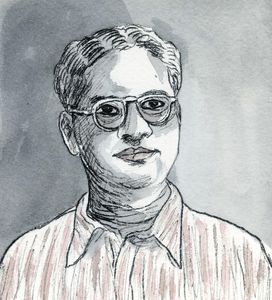One night in July 1987. The Indo-Sri Lanka accord, which Rajiv Gandhi hoped would end the Lankan civil war, was being hammered out. Rajiv was to fly to Colombo the next afternoon.
There was one hitch. The Liberation Tigers of Tamil Eelam were not on board.
In a last-ditch bid, Rajiv summoned Tiger chief V. Prabhakaran, who had been been a ‘guest’ of R&AW in Samrat Hotel next door to the PM House, at 11pm. He tried sama, dana, bheda and threat of danda, but the Tiger would not budge. Finally, Rajiv gave up; the Tiger could burn bright in hell.
As Prabhakaran was being taken back to his rooms, he asked to see GP. The PMO went into a tizzy. GP had retired months ago, but Prabhakaran would hear none of that. If he was not allowed, he would sit in dharna in front of the PM’s house.
Finally, his ‘guardians’ drove Prabhakarn to GP’s home at 1am. The two talked for an hour, during which the Tiger explained why he could not accept the accord.
“What do you expect me to do?” GP asked.
“Sir, I want you to know about this, and also to understand that if later on some untoward events take place, you will not blame the LTTE.”
Early next morning, GP called the PM and advised caution. Rajiv consulted his new advisers again. They told him to go to Colombo; GP could go to hell.
As GP feared, the accord, allegedly drafted by the US, was doomed from letter A. At the guard of honour in Colombo, a naval rating hit Rajiv with his rifle butt. The accord was received with silence by Colombo’s diplomatic circles, save for a bravo from the US ambassador. Even before the ink on it had dried, the Indian Army, which was sent to keep peace between the Lankan troops and the rebels, was drawn into the bloodiest jungle war it had fought after Burma in World War II, and from which it would come back bleeding and limping. And, four years later, the Tigers would human-bomb Rajiv.
Many in Delhi’s policy-making circles still believe that Rajiv would not have blundered into the Lankan fiasco, had GP been advising him. But, in the karmic dogma of history, there is no ‘if only’.
Who was GP, whom the dreaded Tiger wanted to meet, and who could ring up the PM at 7am, and warn him against a decision that the PMO had taken in its wisdom?
He was G. Parthasarathi, a Ranji Trophy player, an Oxford graduate, a bar-at-law, a newspaper hack, a diplomat, a policy adviser, the founder-VC of JNU, head of Indian Council of Social Science Research (ICSSR), and much more. One of those extraordinary gentlemen who strode the corridors of the South Block during the Nehru-Indira years, their minds grappling with crises, and their hearts beating for India on the ‘left’ side of the body-politic.
The anecdote above is just one among the many recounted by old South Block hands in the just-launched book GP: 1912-1995, edited by his son Ashok Parthasarathi, a chip off the old block. (Ashok started life as a physicist, and ended up as Indira Gandhi’s science adviser.) Essentially a collection of panel discussion speeches, the book offers not one but several insiders’ views into the working of not only those minds, but also of the PMO during the Nehru-Indira days.
Having carried the Indian flag in Vietnam, Cambodia, China, the UN and elsewhere, GP was most adept at accord-making. He got Nehru to work out a deal with Sheikh Abdullah by which the latter was freed from prison and brought into politicking, and Jammu and Kashmir brought into the nation’s political mainstream.
GP’s greatest successes were the Indira Gandhi-Sheikh Abdullah Accord of 1975 which ended instability in J&K for 10 years, and the Mizo miracle of the early Rajiv era, which is working even today. He guided Indira Gandhi’s Lanka policy and Rajiv’s in the initial months, till a few upstarts came in and led Rajiv up the Jaffna jungle path.
prasannan@theweek.in


